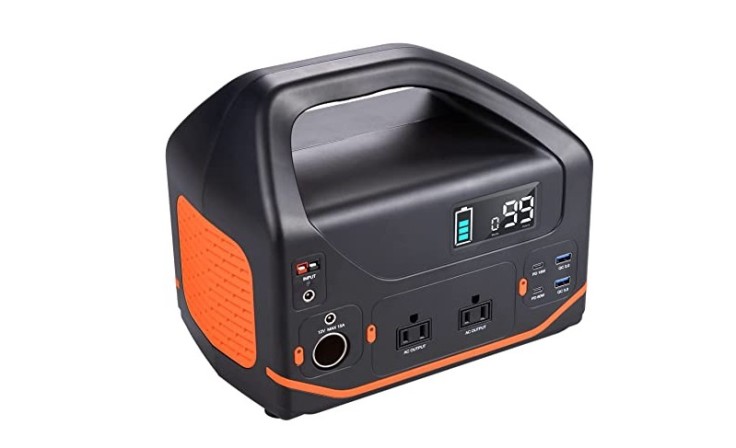
Having enough energy to sufficiently charge all of your electronics and personal devices during a blackout is crucial in today's digital world. There are several ways to accomplish this, but one of the best and simplest is to keep a portable power station nearby.
What Is a Portable Power Station?
According to Consumer Reports, portable power stations, commonly referred to as battery-powered inverter generators, are basically large rechargeable batteries that plug into a standard AC outlet.
Consider it this way: It is similar to power banks, a little device you use to charge your phone when you don't have access to AC outlets. However, portable power stations are larger and better versions of it. This is because aside from having the capability to charge your mobile phones and other small devices, they can store enough power to operate a few small appliances.
To do this, the station typically contains a variety of plugs, including standard AC outlets, USB ports, and DC chargers.
One of the best features of this device is it does not emit carbon monoxide, unlike gas generators.
Read More : Washer-Dryer Combo Is NOT Always a Good Choice - Here Are the Things You Should Consider Before Buying One
Advantages of Portable Power Stations
Jireno listed the advantages of having portable power stations as a backup power source, which we have compiled below:
They are compact and portable - Some rechargeable power supplies weigh under 5 pounds and have a 90-degree handle, making them easy to transport. Aside from being a backup power source during a blackout, you can also utilize this during outdoor activities like camping, touring, and picnics.
It has multiple ports - As previously mentioned, it has AC outlets, USB ports, and DC ports. Some even incorporate Type-C and QC3.0 USB ports, considerably enhancing the product's potential to scale.
It can power up many devices - The large portable battery can also power most electrical devices, including mini-refrigerators, Bluetooth speakers, drones, GoPro, laptops, tablets, smartphones, laptops, and tablets.
Safety protection - The 300W power station configures numerous security prompts, such as over-temperature protection, over-current protection, under-voltage protection, and short circuit protection, to ensure the safe usage of electricity.
Some models are supported with solar panel charging - This battery-powered generator usually offers fast charging in five different methods, including using a solar panel for environmentally friendly and green energy, a PD Charger 60W, a wall outlet, a car outlet, and a generator.
Disadvantages of Portable Power Stations
Consumer Reports listed the some of the disadvantages of having portable power stations, which we have compiled below:
Gas generators still offer much power - You would only get anywhere from 3 to 9 hours of electricity with a portable power station, whereas a recreational inverter generator would likely keep the TV and a few lights on for 8 to 13 hours on one tank of gas.
They take awhile to charge - In order to provide you a full battery and the maximum runtime, it needs to be charged for hours (usually overnight depending on your battery capacity).
Although it is supported by a solar panel, charging takes a lengthy time - Not to mention, in order to use the solar panel, you actually need a good source of sunlight that is unobstructed.
Some portable power stations are not so "portable" - Some of them are about the size of a typical microwave and weigh fairly heavy.
They are expensive - They usually have a steep price tag.
Related Article : How Much Money Can You Save by Switching Off the Lights?









